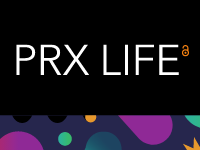| Volume 4, Issue 1 (partial) January - March 2023 | |
Advertisement | Witness groundbreaking physics research, network with potential employers, and prepare for future success at March Meeting 2023. Regular registration rates for one of the largest and most exciting conferences in physics is open through February 28. Register today » | | | | | Advertisement | The Associate Editor will decide on publication of the most exciting and consequential results in the field, conducting a thorough and high-quality review process. A successful candidate will work together with the editorial teams of two top-notch journals, PRX Quantum and Physical Review Applied, in addition to interacting with their Lead Editors and Editorial Boards. The Associate Editor will also be responsible for engaging and building connections with researchers from this highly regarded multidisciplinary research community. Apply today! | | | | | | Not an APS member? Join today to start connecting with a community of more than 50,000 physicists. | | | | Tutorial Philipp Stammer, Javier Rivera-Dean, Andrew Maxwell, Theocharis Lamprou, Andrés Ordóñez, Marcelo F. Ciappina, Paraskevas Tzallas, and Maciej Lewenstein PRX Quantum 4, 010201 (2023) – Published 20 January 2023  | A pedagogical and comprehensive introduction to the full quantum description of intense laser-matter interactions and its potential for quantum state engineering is presented. | | | | | | Tobias Haug and M.S. Kim PRX Quantum 4, 010301 (2023) – Published 3 January 2023  | The newly introduced concept of Bell magic allows quantifying the quantum computing resource necessary for advantage in an efficient and practical way. | | | | | | B.-W. Li, Y.-K. Wu, Q.-X. Mei, R. Yao, W.-Q. Lian, M.-L. Cai, Y. Wang, B.-X. Qi, L. Yao, L. He, Z.-C. Zhou, and L.-M. Duan PRX Quantum 4, 010302 (2023) – Published 5 January 2023  | A trapped-ion simulator shows quantitative agreement when probing critical behavior around a quantum phase transition. | | | | | | Alireza Seif, Ze-Pei Cian, Sisi Zhou, Senrui Chen, and Liang Jiang PRX Quantum 4, 010303 (2023) – Published 9 January 2023  | A method for mitigating errors in near-term quantum computers utilizing randomized measurements explores the trade-off between the number of measurement settings and the number of repetitions of each measurement. | | | | | | Zijian Song, Arpit Dua, Wilbur Shirley, and Dominic J. Williamson PRX Quantum 4, 010304 (2023) – Published 11 January 2023  | A systematic method for constructing topological defect networks for a wide range of lattice Hamiltonians is presented. | | | | | | Luuk Coopmans, Yuta Kikuchi, and Marcello Benedetti PRX Quantum 4, 010305 (2023) – Published 13 January 2023  | Instead of directly preparing Gibbs states, a more efficient quantum algorithm to estimate them is proposed: generate thermal pure quantum states and use classical shadow tomography. | | | | | | Yu-Xin Wang, Chen Wang, and Aashish A. Clerk PRX Quantum 4, 010306 (2023) – Published 17 January 2023  | A novel approach, based on local gauge symmetries of quantum master equations, is developed to produce nonreciprocal interactions, something which previously was only possible with cascaded systems. | | | | | | Jahan Claes and Shruti Puri PRX Quantum 4, 010307 (2023) – Published 18 January 2023  | A novel technique, called bias randomized benchmarking, is developed to assess the bias in controlled-not quantum gates, a crucial step for advancing quantum error correction in biased-noise systems. | | | | | | Baptiste Courme, Patrick Cameron, Daniele Faccio, Sylvain Gigan, and Hugo Defienne PRX Quantum 4, 010308 (2023) – Published 19 January 2023  | A wavefront shaping approach enables protection of high-dimensional entangled photons traversing a scattering medium, a situation that typically hinders the building of practical quantum microscopy and quantum key distribution. | | | | | | Giacomo De Palma, Milad Marvian, Cambyse Rouzé, and Daniel Stilck França PRX Quantum 4, 010309 (2023) – Published 23 January 2023  | Using newly developed quantum entropic and concentration inequalities, two complementary sets of results are derived that provide a better quantitative understanding of the limitations of variational quantum algorithms. | | | | | | Adam Paetznick, Christina Knapp, Nicolas Delfosse, Bela Bauer, Jeongwan Haah, Matthew B. Hastings, and Marcus P. da Silva PRX Quantum 4, 010310 (2023) – Published 25 January 2023  | A clever method for implementing Floquet codes on topological platforms can lead to an error-correction performance significantly superior to that achieved with the ubiquitous surface code. | | | | | | Jordan S. Cotler, Daniel K. Mark, Hsin-Yuan Huang, Felipe Hernández, Joonhee Choi, Adam L. Shaw, Manuel Endres, and Soonwon Choi PRX Quantum 4, 010311 (2023) – Published 27 January 2023  | A new perspective on the emergence of statistical behavior in chaotic quantum many-body systems is presented, establishing projected ensembles as a relevant tool for the characterization of information-theoretic properties. | | | | | | Ieva Čepaitė, Anatoli Polkovnikov, Andrew J. Daley, and Callum W. Duncan PRX Quantum 4, 010312 (2023) – Published 30 January 2023  | A hybrid approach to achieving coherent control, dubbed COLD, promises substantial improvement when applied to annealing protocols, state preparation schemes, entanglement generation, and population transfer on a lattice. | | | | | | | |

No comments:
Post a Comment